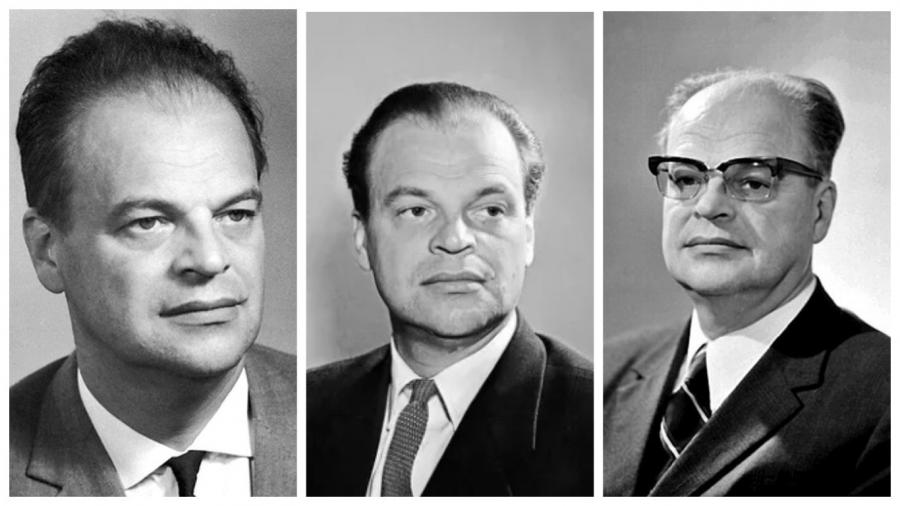Nikolai Basov was born in 1922 in the city of Usman, Tambov province (now the Lipetsk region), then the family moved to Voronezh. In 1941, after graduating from school, Basov was sent to the Kuibyshev Military Medical Academy, where he received the specialty of a paramedic.

Nobel Laureate Nikolai Basov
Then he fought on the Ukrainian front. According to the stories of students, once Nikolai Basov managed to perform an operation on a wounded soldier in the field. The operation was successful, and subsequently Basov was proud of her no less than the Nobel Prize.
Basov dreamed of becoming a scientist even then, and throughout the war he carried a textbook on the theory of relativity in his duffel bag. After demobilization, in February 1946, he accidentally saw an ad for an additional student enrollment at MEPhI and immediately entered the university. He defended his diploma in 1950.
Even before graduation, Nikolai Basov got a job as a laboratory assistant at the Lebedev Physical Institute of the Academy of Sciences (LPI), where he then continued to work as a researcher under the guidance of Mikhail Leontovich and Alexander Prokhorov. In 1953, he defended his Ph.D. thesis, and in 1956, his doctoral dissertation on the topic "Molecular Generator".
In 1963, the future Nobel laureate returned to MEPhI as a professor and worked at the institute until 2001. In 1978, he organized and headed the Department of Quantum Electronics, later renamed the Department of Laser Physics.
In 1971, Nikolai Basov created the Special Faculty of Physics at MEPhI, which later became known as the Higher School of Physicists. The school trained engineers with deep knowledge of higher mathematics, experimental and theoretical physics. In terms of her scientific activities, she was part of the FIAN structure, and in terms of educational activities, she was part of the MEPhI. On November 30, 2001, the Higher School of Physics was awarded the Prize of the President of the Russian Federation in the field of education, and was named after its founder.
The scientific work of Nikolai Basov was devoted to quantum electronics and its applications. Together with Alexander Prokhorov, he established the principle of amplification and generation of electromagnetic radiation by quantum systems, which made it possible in 1954 to create the first quantum generator (maser) based on a beam of ammonia molecules. The following year, a three-level scheme for creating an inverse level population was proposed, which found wide application in masers and lasers.
In 1964, Nikolai Basov, together with Alexander Prokhorov and Charles Townes, received the Nobel Prize in Physics for "fundamental work in the field of quantum electronics, which led to the creation of oscillators and amplifiers based on the laser-maser principle."
Subsequently, Basov participated in the development of various types of semiconductor lasers, conducted research on high-power gas and chemical lasers. Under his leadership, hydrogen fluoride and iodine lasers were created, and then an excimer laser. The scientist came up with the idea of using lasers for controlled thermonuclear fusion, he proposed methods for laser heating of plasma, analyzed the processes of stimulating chemical reactions by laser radiation.
He also developed the physical foundations for creating quantum frequency standards, put forward ideas for new applications of lasers in optoelectronics, and initiated research in nonlinear optics. The merits of Nikolai Basov to domestic and world science have been marked by numerous awards.
The scientist died on July 1, 2001. He was buried at the Novodevichy Cemetery in Moscow. In 2017, a monument to Nikolai Basov by sculptor Alexander Mironov was unveiled on the Alley of Nobel Laureates of MEPhI.





